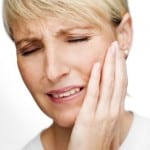 A dental abscess is one of the most common types of tooth infection. Abscesses are fluid-filled sores caused by bacteria. If you’ve been struggling with tooth pain or want learn about the potential signs of a dental infection, here are some tips to help you:
A dental abscess is one of the most common types of tooth infection. Abscesses are fluid-filled sores caused by bacteria. If you’ve been struggling with tooth pain or want learn about the potential signs of a dental infection, here are some tips to help you:
Pain
One of the most noticeable symptoms of a dental abscess is pain that tends to come on suddenly and worsen gradually. In most cases, pain may be severe and most commonly it is described as a throbbing sensation in and around the tooth. Sometimes, pain can radiate and you may also experience discomfort in other parts of the mouth as well as in the neck and the lower jaw.
Swelling
Swelling is common when you have a dental abscess, and it can be widespread. In some cases, you can notice that the side of the face is swollen as well as the tissue directly surrounding the abscessed tooth.
Sensitivity
Sensitivity to hot and cold foods and drinks is common when you have an abscess and it can also be symptomatic of acid erosion, which occurs when the enamel becomes worn.
Tenderness
If you have an infected tooth, you will probably experience tenderness around the tooth, especially when you try and use it to chew or bite down on food.
Fever
Abscesses can make you feel under the weather as well as being very painful, and you may find that you have a high temperature and generally feel poorly.
Bad breath and an unpleasant taste in the mouth
Abscesses are filled with pus and this makes your breath smell unpleasant and gives you a disagreeable taste in the mouth.
When should I see a dentist?
If you suffer from symptoms such as severe, throbbing dental pain and inflammation, it’s always a good idea to call and arrange an appointment with your dentist. It’s best to get symptoms checked out. If you do have an abscess, we can treat it swiftly to prevent the infection from spreading and make you feel more comfortable. Unlike other types of abscess, dental abscesses cannot be treated by doctors and must be treated by dentists.








 There are many decisions to be made when considering how best to take care of your mouth such as what type of brush to use and which, of the many, tooth pastes. One of the decisions that people have wrestled with over the years concerns fluoride and it is not without controversy. Read on for more information.
There are many decisions to be made when considering how best to take care of your mouth such as what type of brush to use and which, of the many, tooth pastes. One of the decisions that people have wrestled with over the years concerns fluoride and it is not without controversy. Read on for more information. When dental problems arise they can be very unpleasant if not treated quickly and efficiently. One of the most unpleasant dental conditions is a dental abscess. This is when pus collects in certain areas around the teeth and gums as a result of a bacterial infection.
When dental problems arise they can be very unpleasant if not treated quickly and efficiently. One of the most unpleasant dental conditions is a dental abscess. This is when pus collects in certain areas around the teeth and gums as a result of a bacterial infection.

